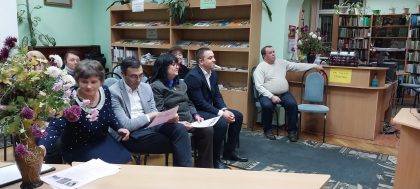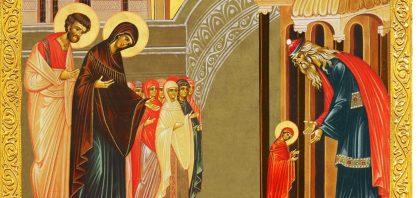Rosen Plevneliev, the candidate of the ruling center-right party GERB, has won Bulgaria’s Presidential Elections.
 Plevneliev, who served as Regional Development Minister in the Borisov Cabinet from 2009 till 2011, quitting in order to run for President, emerged as the winner in Bulgaria’s presidential vote run-off on Sunday.
Plevneliev, who served as Regional Development Minister in the Borisov Cabinet from 2009 till 2011, quitting in order to run for President, emerged as the winner in Bulgaria’s presidential vote run-off on Sunday.
Plevneliev beat his competitor, the candidate of the Bulgarian Socialist Party Ivaylo Kalfin, by winning 55.3% of the votes cast Sunday, according to the exit poll of Gallup.
Kalfin, a former Foreign Minister in the Stanishev Cabinet in 2005-2009, and current Member of the European Parliament, got 44.7% of the votes in the run-off in spite of the support that he received from Bulgaria’s ethnic Turkish party DPS (Movement for Rights and Freedoms) and its powerful leader Ahmed Dogan.
Plevneliev has made it to the Presidency together with former Justice Minister Margarita Popova as his running mate.
Bulgaria saw a relatively high voter turnout on Sunday with more 50% going to the polls, notably more than had been predicted.
In the first round in Bulgaria’s presidential vote a week earlier, Plevneliev won 40.11% of the votes, or 1 349 380 votes, vs. 28.96%, or 974 300 votes for Kalfin, a lead of 11% (375 000) that Kalfin failed to make up even in spite of the popularity of his running mate, actor Stefan Danailov.
The Bulgarian presidency is largely ceremonial, but is very respected and entitled to suspensive veto power over legislation.
The win of Plevneliev, 47, strengthens power for his ruling GERB party, to push ahead with its agenda for painful economic reforms and Bulgaria’s accession to the passport-free Schengen travel zone.
The center-right party, which came into office in the summer of 2009 with promises to root out corruption and boost Bulgaria’s competitiveness, has failed to convince the European Union what it has done is enough and has seen its hopes for Schengen entry damped time and again.
It has also faced a huge challenge in trying to cope with the country’s economic woes, which were only exacerbated by the eurozone debt crisis as demand for exports from the country decreased.
A total of about 11,400 polling sections across the country were opened for citizens to vote and more than six million Bulgarians were eligible to take part in the elections. The sites in the capital only were guarded by almost 2,000 police officers.
Polls opened at 6 a.m. (0400 GMT) on Sunday and closed at 7 p.m. (1700 GMT), with 6.9 million people eligible to vote.
Bulgaria’s 2011 election campaign has been marred by protests against the country’s Roma minority, an explosion of a self-made bomb that blasted the car of a popular Bulgarian journalist, known for his harsh criticism against the government.
International observers have also voiced serious concerns about the fairness of the vote. There have been reports about large-scale vote buying and manipulations in the counting of the ballots.
Source: www.novinite.com






